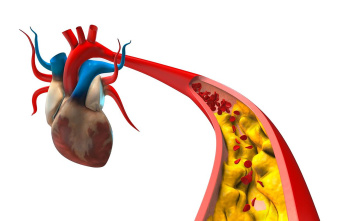It can sometimes be difficult to find the right words, when, for example, we will say, for the first time to our lover that we love them.
But a new study suggests that the kind of kærlighedserklæringer can actually be even more complex to translate than they are to say.
It writes The Guardian according to the Science.dk.
the Study made by researchers at the University of North Carolina Chapell Hill and published in the journal Science.
According to the Guardian, the word 'love', and what it implies, namely, experienced differently, depending on where in the world you are born.
In the indo-european languages – which includes English, Danish, and German – does the feeling of love close up ad 'to think about' or 'to have something.'
In the austronesian languages – for example, vietnamese – is love stronger associated with pity. The same applies for anger.
"even Though we may assume that there is a word for anger on the hundreds of languages, so that means the words may not be the same," explains Joshua Conrad Jackson, who is lead author on the project, to the Guardian.
the Study was made on the basis of an analysis of how 24 different emotions such as anger, love and pride appears in the entire 2.474 language.
In spite of the many cultural differences the researchers found also that there were some universal ways to experience emotions of:
All languages compartmentalize the emotions either pleasant or unpleasant to experience, but also distinguish between whether the sense involving a high or low degree of arousal.
According to the study, there were strikingly few languages that put the equal sign between sadness and anger, two emotions with very different intensity.
The findings support the idea that there are primary emotions in our stenalderhjerner by man through the millennia, across cultures has been given different names, believes associate professor Joshua Jackson.
"There are building blocks in the us, as constituted by emotions. Man has shaped these building blocks for thousands of years in our respective cultures," says Joshua Jackson, according to The Guardian.
According to the Angeles Carreres, ph.d. in languages at Cambridge University, provides dictionaries us often a false understanding.
the Researchers behind the new study says, however, that their findings do not mean that dictionaries are useless.
"But we say that you can't take the translations too literal," says Joshua Jackson for The Guardian. the
Other articles on Science.dk:












